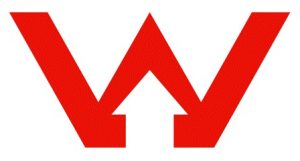Overview
Whether it is a voluntary or a mandatory requirement, achieving product certification can be an essential step in gaining or maintaining momentum in the market place.
Product certification will demonstrate that your product complies with local, national or international product standards relevant to the market considered. It demonstrates that your product has been independently confirmed to comply with design requirements and to have passed the performance and quality assurance tests. It gives confidence to the market place and establishes that your product is suitable for its intended use.
Scheme
Approved Product
This program is based (but does not follow the requirements of) on a Type 5 approval. This program is not accredited.
Product conformance issues are becoming increasingly mandated by regulators or expected by consumers. Due diligence is also expected in most product-related litigation. Point of sale legislation in some states or countries require that products be tested, and certified before they can be offered to the market, or connected to a network or infrastructure.
Type 5 certification is one of the most flexible types of product conformance, delivered by an independent organisation, and based on a (or a number of) test report issued by a laboratory. The ongoing factory surveillance activities allow an ongoing monitoring of design change or competence changes, and provides the manufacturer or supplier the ability to continue to evolve the design of the product.
This program differs from the Certified Program as follows:
• There is no published standard or document that meets the definition of a standard
• There is no approved laboratory accredited for testing the product
A company or industry group can approach Global-Mark to develop a certification specification for a particular product. This approval process involves:
Initial assessment (the following is not necessarily chronological):
• Development, publication and approval of the certification specification
• Client presents a product technical file for the product
• Laboratory report to be presented and reviewed by Global-Mark
• Review of the manufacturer’s production control system, which needs to comply, as a minimum to Global-Mark’s production control requirements, and is presented in a product support plan
• Subject to the above review, Global-Mark will issue a Certificate of Approval (valid for 5 years)
• The certificate of approval is valid for the product or a range of product of similar characteristic, material and production processes, as tested.
• Under this program, the Global-Mark certification mark can be affixed to the product, its packaging or supporting literature
• If any of the product critical components are changed, a new test report is required. Global-Mark needs to be notified and approval needs to be granted (using the design lock change form).
• Business review at the manufacturer of the production system to ensure that production process is stable and capable
• Selection of a sample (by Global-Mark or authorised representative)
• Sample to be tested by an approved laboratory
Ongoing assessment
• Ongoing review (minimum yearly) of production system
• Review and approval of changes during the life cycle of the product (using the design lock change form)
• Ongoing sampling and testing of the product (as the product changes, as defined in the CS, standard or when approved test reports expire).
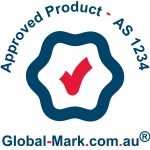
Certified Product
This program is based on a Type 5 approval.
Product conformance issues are becoming increasingly mandated by regulators or expected by consumers. Due diligence is also expected for in most product related litigation. Point of sale legislation in some states or countries require that products be tested, and certified before they can be offered to the market, or connected to a network or infrastructure.
Type 5 certification is one of the most flexible type of product conformance, delivered by an independent organisation, and based on a (or a number of) test report issued by an Approved Laboratory. The on-going factory surveillance activities allow an on-going monitoring of design change or competence changes, and provide the manufacturer or supplier the ability to continue to evolve the design of the product.
Finally, the certification can be sought by the manufacturer, an importer or a distributor. Global-Mark can issue a transfer certificate if the product has been tested and certified by another certification company overseas, under an internationally approved scheme (IEC scheme for example).
This approval involves:
Initial assessment (the following is not necessary chronologically)
• Client presents a product technical file for the product
• Laboratory report (acceptable test report) to be presented and reviewed by Global-Mark
• Review of the manufacturer’s production control system, which needs to comply, as a minimum to Global-Mark’s production control requirements (G-11) and presented in a product support plan
• Subject to the above review, Global-Mark will issue a Certificate of Approval (valid for 5 years)
• The certificate of approval is valid for the product or a range of product of similar characteristic, material and production processes, as tested.
• Under this program, the Global-Mark certification mark can be affixed to the product, its packaging or supporting literature
• If any of the product critical components is changed, a new test report is required, and Global-Mark needs to be notified and approval granted (using the design lock change form).
• Business review at the manufacturer of the production system to ensure that production process is stable and capable
• Selection of a sample (by Global-Mark or authorised representative)
• Sample to be tested by an approved laboratory
On-going assessment
• On-going review (minimum yearly) of production system
• Review and approval of changes during the life cycle of the product (using the design lock change form)
• On-going sampling and testing of the product (as the product changes, as defined in the CS, standard or when approved test reports expire)
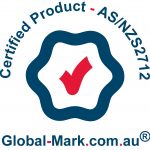
Certified Product Type
This program is based on a Type 1 approval .
Product conformance issues are becoming increasingly mandated by regulators or expected by consumers. Due diligence is also expected for in most product related litigation. Point of sale legislation in some states or countries require that products be tested, and certified before they can be offered to the market, or connected to a network or infrastructure.
The certification can be sought by the manufacturer, an importer or a distributor. Global-Mark can issue a transfer certificate if the product has been tested and certified by another certification company overseas, under an internationally approved scheme (IEC scheme for example).
This approval involves:
Initial assessment (the following is not necessary chronologically)
• Client presents a product technical file for the product
• Laboratory report (acceptable test report) to be presented and reviewed by Global-Mark
• Subject to the above review, Global-Mark will issue a Certificate of Approval (valid for 3 years)
• The certificate of approval is valid for the product or a range of product of similar characteristic, material and production processes, as tested.
• Under this program, the Global-Mark certification mark can be affixed to the product, its packaging or supporting literature
• If any of the product critical components is changed, a new test report is required, and Global-Mark needs to be notified and approval granted (using the design lock change form).
• Possible selection of a sample (by Global-Mark or authorised representative) in the market, manufacturing site or distributor (at Global-Mark’s discretion)
• Sample to be tested by an approved laboratory
On-going assessment
• Review and approval of changes during the life cycle of the product (using the design lock change form)
This program is a “type test”certification scheme, and does not include factory audits. It is typically for simple, low risk products.
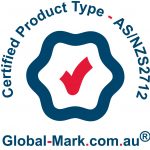
CodeMark Certification Scheme
The CodeMark Certification Scheme (CodeMark) is a voluntary building product certification scheme that supports the use of new or innovative products. CodeMark provides confidence and certainty to regulatory authorities and the market through the issue of a Certificate of Conformity, which is one form of evidence that can be used to demonstrate that a building product complies with NCC Volumes One and Two, the BCA.
The Scheme operates in both Australian and New Zealand and was jointly developed by the ABCB and the New Zealand Department of Building and Housing (now part of the Ministry of Business, Innovation and Employment.) However, products must still be certified separately for Australia and New Zealand because there are differences in the two countries’ building codes.
Codemark certification is a significant compliance tool. It can also help you to reduce market reluctance to consider innovative product or process.
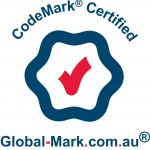
Electrical Product Safety Certification Scheme
The Global-Mark Electrical Product Safety Certification Scheme is recognised by the Australian governments to issue the mandatory Certificates of Conformity/Approval for Declared/Level 3 and the Certificate of Suitability for Non Declared/Level 1 & 2 products.
The scheme meets the requirements for both REAS (NSW OFT) and EESS (ESO Qld).
Global-Mark certificates authorise the use of the RCM mark on the products.
After the Certificate of Conformity/Approval is issued Global-Mark will upload the details of the certificate to the ERAC website, allowing the Australian responsible supplier to be able to register their products.
Gas Cylinder Test Station
The AS 2337 series of standards provides test station owners with the requirements and procedures to carry out initial and periodic inspections to comply with regulatory needs. Global-Mark certifies Gas Cylinder Test Stations (GCTS).
GCTS Certifications provides test station owners and consumers with confidence that the product is safe – certificates of conformity will be issued when all conditions are met.
GCTS Certification is based on onsite document review, workplace and equipment adequacy and signatory assessments. Test Station Manager and Nominated Signatories are subject to an assessment on the applicable standards and the names of the competent personnel are published on the Certificate of Conformity as signatories. GCTS Certification allows the test station mark to be applied.
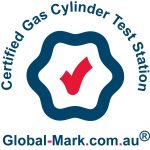
Gas Safety
Since 2004 the gas compliance market in Australia has been de-regulated and now organisations accredited by JASANZ and recognised by the state regulators can offer independent certification services.
Gas appliances whether indended for indoor or outdoor use are required to be certified. The certificaiton will demonstrate tha the product is safe and fit for purpose. This approval is based on a type 3 approval (type test) and involves on-going product surveillance.
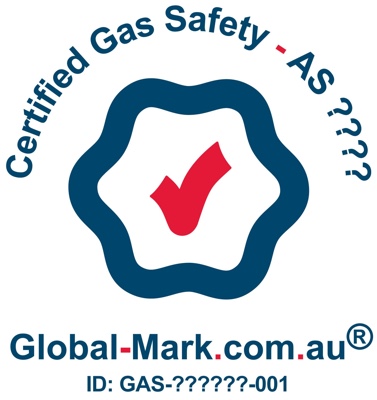
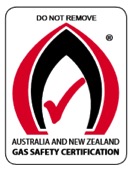
Watermark Certification
The WaterMark Certification Scheme (WaterMark) is a mandatory certification scheme for plumbing and drainage materials and products to ensure they are fit for purpose and appropriately authorised for use in plumbing and drainage installations. The NCC, Volume Three requires certain plumbing and drainage materials and products to be certified and authorised for use in a plumbing or drainage installation.
This is the Australian certification for plumbing products and for a licenced plumber to install the product, a watermark certification is required unless the prodcut category has been explcitly excluded.
